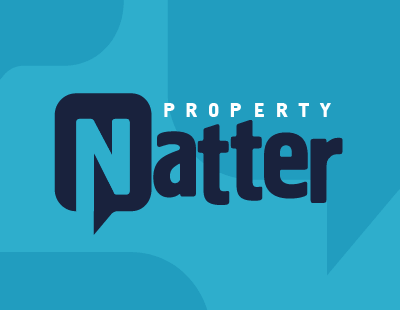Harry Wilson is the owner of a new lettings agency – Sky Property - soon to be launched in Stoke-on-Trent, but he started out in the ‘real estate capital of the world’. Namely Manhattan, New York City.
First, here is what his average day looked like when he lived in the States, a day that would probably be very similar to most lettings realtors across major US cities.
7:30am: Takes the subway to the office. Grabs a stereotypical New York breakfast from the bagel stand.
8:00am-8:30: arrives at the office. Updates and posts new listings, responds to enquiries, prepares and plans out his day of showings.
9.00am: confirms his showing appointments and gains access to the buildings. 2-3 clients a day, showing 2-4 different apartments across the city.
On quieter days, he would contact property owners, tune listings, find apartments to fit clients’ needs, plan open houses and work on his business.
Last showings were usually no later than 8.00pm. It was typical to have a last showing at 6pm, but often a lot of clients wanted to view after work or on weekends.
Open houses (very common and a powerful tool) were usually held on Sundays, but could also be for any time there was a free timeslot.
After work he wouldn’t really switch off, as most people are in Manhattan to work. He would spend most nights in the office till 11pm, but this is not really typical of US agents, just those who are keen to get ahead.
Sometimes he would go to the gym or a bar with friends to blow off steam. Often, he’d attend ‘broker events’ where a luxurious property or new development would put on food and drink.
From NYC to…erm…Stoke-on-Trent
Without wanting to disparage Stoke-on-Trent, with its fine industrial and creative history, its famous old football team and its status as the birthplace of Robbie Williams, Anthea Turner and Sir Stanley Matthews, it must have been quite a culture shock to return from the Big Apple to the Potteries.
But how did Harry Wilson make that journey?
“I had always been interested in real estate/property due to the large number of ways it is possible to make a career, and the seemingly endless possibilities,” he tells me.
“I dropped out of university in what was supposed to be my ‘Placement Year’ to move to New York with a sales company just as I turned 19. However, a couple of years in, I had reached my ceiling with the company and wanted to take advantage of my selling experience, so I decided that real estate was one of the best sales jobs going.”

As he worked with lots of landlords and developers, he came to learn a lot about the investment side as well.
Fast forward to just a year ago, he was turning 25 and had decided to move back to the UK, ‘for a multitude of reasons’, with one of them being the intention to invest in property in his hometown of Stoke-on-Trent, where his budget was much higher than the city’s house prices.
How did Sky Property first come about, though? “Upon viewing properties to buy and also to rent for myself, I quickly became aware of a large gap in the marketplace - nobody was providing a personal service. In my view, software and economies of scale will never be able to replace local expertise and personalised service. A good agent will always be able to justify having a slightly higher rate than an online package from the results they deliver.”
“I decided I could provide a lot of value for those who are looking for a more personal and tailored experience. There is no reason why a landlord of a terraced house in Stoke-on-Trent shouldn’t get the same quality of service that a large development company would expect.”
What are his firm’s main selling points? “We aim to be competitive in our rates, as we do not have the large overheads of a franchisee. For all our systems, we are adopting a New York style in customer focus. Whilst there has been a lot of work in bringing everything in line with the different models and regulations of the UK, I have strived not to learn any of the bad habits and take all of the good, combining them to make Sky Property.”
What are the main differences between the US and UK models?
Harry points to a number of things, including rules and regulations, working hours and personal brands.
“In the US, an agent will need to work under a broker and pass examinations, along with continuing education. Whereas in the UK, agents are less regulated with a lower acceptable standard,” he argues.
Over there, he adds, agents typically make all their commission upfront with rentals, with ongoing maintenance handled by a separate property management company. In the UK, by contrast, agents collect an ongoing percentage with lower upfront fees.
Another difference in the US is that agents from different agencies can work together and split fees to get a deal done. “One will represent the tenant and one the landlord, split for 7.5% of the lease each.”
Most US states (except NYC) also operate from a multiple listings service (MLS), where every single property is listed. An agent can show you the whole property market, rather than just showing you properties on their own books.
“Working times are a lot different, as agents tend to be independent contractors,” Harry continues. “They work when the demand is there and not when their boss says so. With residential property, agents are usually working showings when everyone else isn’t working - Sundays, lunchtimes and on the way back from work are some of the most popular times as these are times when clients are usually free.”
Harry also believes a US agent’s reputation is built more around a personal brand, whilst in the UK it is more tied to a branch or company. “This is the reason for the stereotypical pictures of faces on signs and business cards.”
What are the similarities?
“Although there are many differences in culture, geography, regulations and rules, the core needs of property owners and property seekers are ultimately the same. Tenants or buyers want somewhere in the right area with the right specifications and amenities within their budget, and landlords want their property filled fast with a quality tenant that will take care of the property. Although the way the US and the UK go about achieving their goals are very different, the end goals are always the same.”
The basic principles of dealing with people, possessing valuable knowledge, a positive attitude, professionalism and paying attention to your client’s needs are all things that matter across the world in every market, Harry says.
“Almost all of the methods I would use to market a $6,000pcm high-rise apartment on Lexington Ave can be used to market a £600pcm terraced house in Stoke-on-Trent.”
What could the UK model learn from the US, and vice versa?
“The UK model could perhaps benefit from implementing some of the co-operative nature of the US agent model.
“In the US, a client could work with one agent for the whole market using the MLS, whereas in the UK agents tend to only show the listings on their books even if they know of a competitor’s property that would be perfect.”
The US agent model, he says, could maybe learn more about the ongoing management aspect as a source of recurring revenue – there, once the tenant is in, the tenancy agreement is signed and the cheque has been cashed, most agents will no longer be involved.
He believes the US could also benefit from the single brand identity that most UK agents have. In the US, agents are mainly judged as themselves or their team solely, with their company holding less importance.
Customer service!
US agents are known for their enthusiasm, their focus on customer service and their gregarious ways – but is that a fair representation or something of a myth?
“Absolutely! The reputation of pizazz definitely has some truth in it, however maybe a bit over exaggerated when portrayed in the TV shows,” Harry says. “Being British myself I am more of a reserved type of character. However, upon viewing many properties with UK agents, I noticed I definitely take a different approach, with many agents in the UK just being there to open the front door and relying on online information. It makes the client feel like showing the property is a chore and that they just want to get to the next showing.”
The entrepreneurial nature of the US model generates a lot of competition, with tens of thousands of agents combined in the 22.7 square mile area of Manhattan. “Only the best agents can survive and manage to make a living. A lot of those offering low quality of service or lacking sales ability are quickly weeded out and pushed into other career paths. This is a double-edged sword as it can be very cruel on those that struggle to get by. At the same time, it’s great for those who have what it takes.”
He adds: “I think being overly eccentric and entertaining makes for good TV, but being genuine and enthusiastic about what you do is all that matters. Anything else is possibly a bit too much and could end up putting people off, especially in the UK as we tend to be more reserved.”
What sort of fees do US agents charge?
Harry says the majority of agents in the US are classed as independent contractors, working on commission-only and paying a commission split of 80-50% to their supervising broker.
“For rentals, typically one month of rent and up to 15% of the annual is the typical compensation, based on what the agent is able to negotiate from the tenant and any landlord or developer incentives.”
Meanwhile, for sales, there are two sides of the transaction. A seller’s side will receive up to 3% and the buyer’s side the same, based on negotiations with the seller. If the selling agents represent both sides then they will get commissions from both sides, usually paid by the seller.
How are US agents perceived?
Estate agents in the UK don’t have a very good reputation - and can often be perceived negatively. Is the same the case in the US?
“To a certain degree,” Harry answers. “Agents that work with tenants receive negative press based on the bad apples that negotiate excessive fees. However, most agents, in terms of ability, professionalism and customer service, don’t get such a bad rap.”
“In the UK, agents seem to have a different issue which seems more based on the idea that they don’t earn their fees, which sounds quite extraordinary to me given the fees in the UK are much lower comparatively.”
Is being a realtor something to aspire towards in the US, though?
“Becoming an agent is not something kids grow up wanting to be when they are older. But for those that want to be in control of their own income, it is an attractive option. It is seen as an entrepreneurial venture rather than a job as agents mostly need to mould their own clientele to make an income.”
He adds: “In the UK, agents work with their branch. Clients and properties are more shared and there is more of a ‘job’ mentality. To become their own brand, they would need to open their own company, whereas in the US, the company acts as an umbrella to which agents build their own businesses underneath.”
Very insightful stuff, Harry. Best of luck with your new venture!
Until next time…
*Nat Daniels is CEO of Angels Media, publishers of Estate Agent Today and Letting Agent Today. Follow him on Twitter @NatDaniels.
























Join the conversation
Jump to latest comment and add your reply
Good luck to you, Harry. Plenty to learn out of this read
Please login to comment